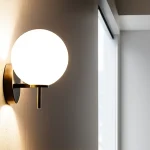Innovative Upcycled Furniture Ideas for Bristol Gardens
Incorporating upcycled furniture into your garden can revolutionize your outdoor space, transforming it into a unique and environmentally friendly haven. Upcycled materials not only enhance sustainable gardening efforts but also provide cost-effective and distinctive options for furniture. Imagine an old bathtub repurposed as a lush garden planter or vintage suitcases transformed into quirky seating solutions. These ideas don’t just promote sustainability; they infuse personal character into your outdoor living area.
Unique Design Concepts Tailored to Bristol’s Aesthetics
Bristol is renowned for its eclectic blend of historical charm and modern innovation, making it a fertile ground for creative garden design. Using upcycled furniture can complement Bristol’s unique architectural aesthetics. For instance, incorporating reclaimed wood can mirror the city’s rustic yet chic vibe, while metals and glass can add a modern edge to your garden landscape. This creative blend enriches both visual appeal and functionality.
Additional reading : Designing Inclusive Gardens in Oxford: Creating Welcoming Green Spaces for Those with Mobility Challenges
Benefits of Sustainability in Garden Design
Choosing sustainable gardening practices means contributing to environmental conservation while creating an inspiring personal space. Upcycled furniture is a durable and eco-friendly choice, reducing waste by repurposing materials. This approach fosters resilience in garden design, ensuring your outdoor area remains beautiful and sustainable for years to come.
Local Resources for Upcycling in Bristol
Bristol boasts a vibrant community committed to sustainable materials and upcycling projects, perfect for residents keen on DIY garden furniture. Engaging with Bristol workshops can open doors to learning essential skills. Many local spots offer upcycling classes that cater to different proficiency levels, from beginners to advanced DIY enthusiasts. This type of community involvement doesn’t just nurture personal skills—it empowers individuals to contribute to a sustainable lifestyle.
Also read : Effective recycling strategies for compact kitchens in leeds: enhance your waste management today!
Exploring the city’s local upcycling shops allows access to various materials required for innovative projects. These shops often have unique materials like reclaimed wood, wrought iron, or vintage fabrics that can become focal points in any garden design. Finding these items locally supports the community and reduces the environmental impact associated with transporting goods.
Participating in community events focused on sustainable gardening is another way to deepen your commitment to sustainability. Such events often feature workshops, demonstrations, and networking opportunities, paving the way for collaborative projects. Engaging with these resources not only highlights the importance of community involvement but also helps create a vibrant collection of ideas that benefit individuals and the wider community.
DIY Projects for Upcycled Garden Furniture
Engaging in DIY upcycling projects is an exciting way to craft bespoke pieces for your garden. From creating a pallet bench to repurposing old chairs into garden stools, the options are varied and rewarding. These projects not only enhance your outdoor space but also allow your personality to shine through custom designs.
Step-by-step Guide to Building a Pallet Bench
Begin by sourcing sturdy pallets from local suppliers or by reclaiming shipping pallets. Dismantle them with a pry bar and a hammer, ensuring you have enough slats for the bench’s seat and back. Assemble the frame using wood screws and a power drill, ensuring stability. Sand down rough edges for safety and finish with a coat of eco-friendly weather-resistant paint.
Transforming Old Chairs into Garden Stools
Repurpose old wooden chairs by removing the backrests and cutting the legs to the desired height. Smoothen rough surfaces with sandpaper, then paint or stain to match your garden’s theme. Remember, careful preparation ensures a successful transformation.
Creating Planters from Reclaimed Wood
Reclaimed wood planters can be a charming garden feature. Cut the timber into required sizes, assemble using outdoor wood glue and screws, then seal with a water-resistant finish. These steps ensure your planters withstand the elements while providing aesthetic value.
Design Tips for Transforming Outdoor Spaces
Revamping your outdoor space with upcycled furniture can breathe new life into your garden while promoting sustainable gardening. Start by assessing your garden’s existing layout and envisioning how upcycled pieces can enhance its aesthetic appeal and functionality. An old wooden ladder, for instance, can become a multi-tiered plant holder, adding vertical depth and interest to your garden.
Color schemes play a pivotal role in outdoor environments. Select colors that harmonize with your garden’s natural hues, like earthy greens and browns, to maintain a cohesive look. Using vibrant colors can also create focal points—an upcycled metal chair in bright hues could be a stunning addition.
When integrating upcycled furniture, ensuring their arrangement complements your garden’s flow is crucial. Position seating areas in shaded spots for comfort, while planters filled with fragrant herbs can be placed nearby to enhance the sensory experience.
Remember, the blend of aesthetic appeal and functionality is key. Choose pieces that not only look good but also serve a practical purpose. Bristol’s unique charm can be reflected by weaving its characteristic style into your garden design, making it a personal sanctuary.
Maintaining Upcycled Furniture in Garden Settings
Keeping upcycled furniture in top condition requires attention to furniture maintenance, especially in the many elements of the outdoors. Bristol’s climate can be unpredictable, so devising a routine that addresses seasonal care is essential. Regular checks for wear and tear can prevent minor issues from escalating.
Best Practices for Outdoor Care
- Cleanliness: Regularly clean your pieces with mild soap and water to remove dirt and debris. It prevents accumulation that may lead to deterioration.
- Protection: Apply weather-resistant finishes or sealants to wood and metal to guard against moisture and sunlight.
- Secure Covering: Use tarps or custom covers during extreme weather, such as heavy rains or snow, to protect materials.
Addressing Bristol’s Climate Challenges
Due to the variable weather, maintaining the longevity of upcycled pieces is vital. Conduct seasonal assessments, checking for damage after winter to repair promptly. Additionally, during summer, ensure wooden parts are treated to withstand UV exposure. When well-maintained, upcycled furniture not only endures but remains an attractive component of your garden. By creating an efficient routine tailored to Bristol’s unique climate, you ensure that these pieces continue contributing effectively to your garden’s sustainable design.


